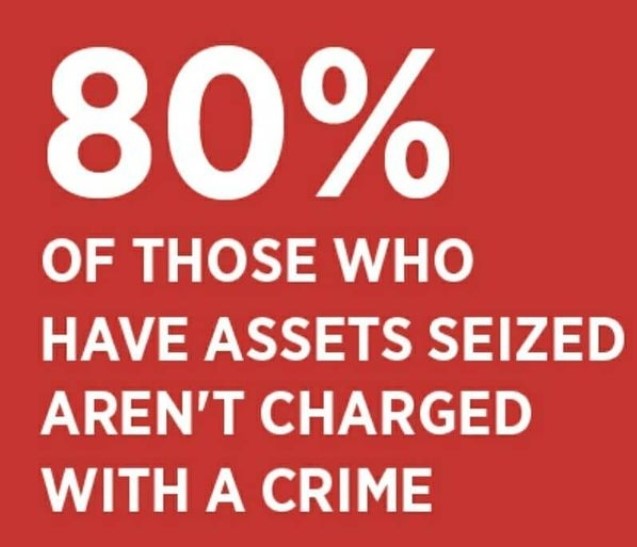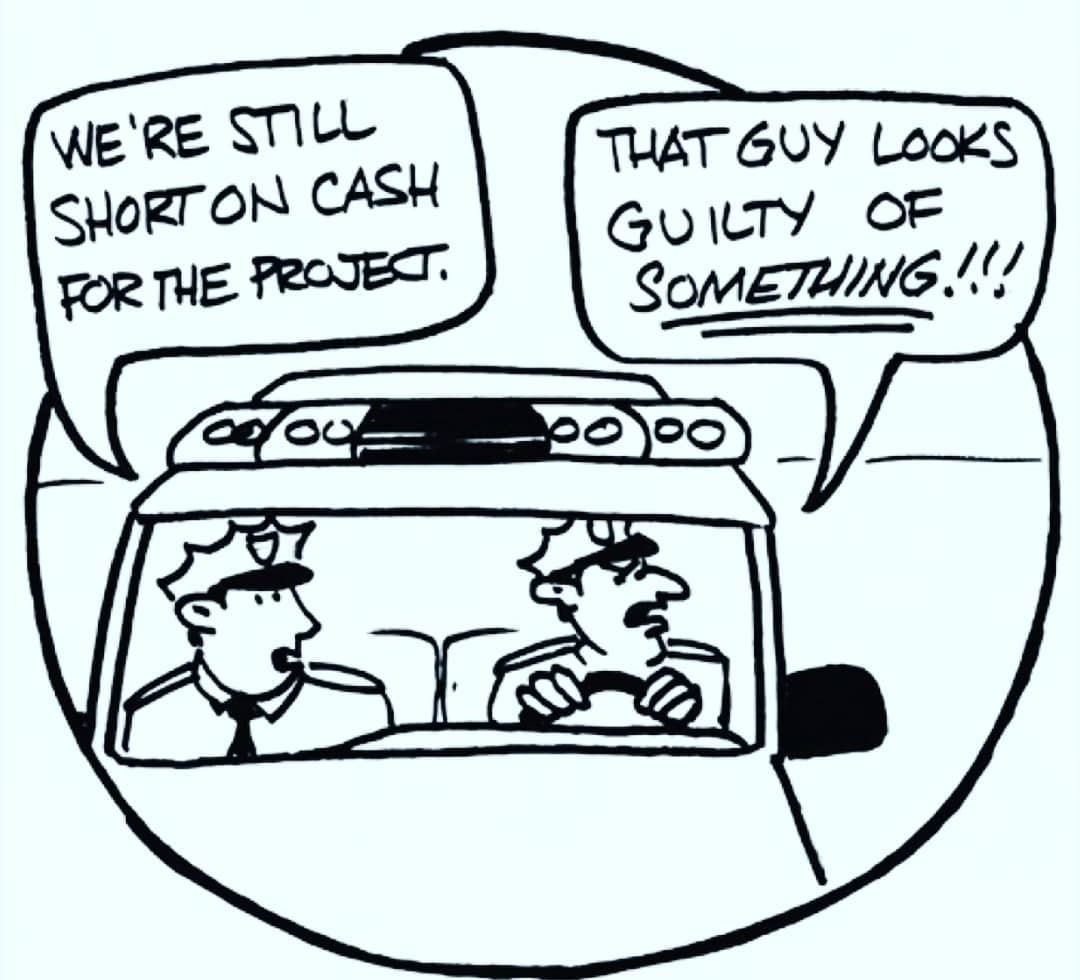NM End of Civil Asset Forfeiture Didn’t Increase Crime: Study
In 2015, New Mexico legislators ended most civil asset forfeiture, the process that lets police keep cash or property they seize, even if they never charge the owner with a crime, so long as they suspect that it’s linked to criminal activity. High-profile lawsuits and press attention prompted some states to reexamine their forfeiture laws. New Mexico sheriffs and prosecutors asked the governor to veto the bill. Eliminating civil forfeiture, they argued, would hand the bad guys a win and put public safety at risk, ProPublica reports. “You’ll get less law enforcement,” predicted the chair of the sheriffs’ association, Ken Christesen, who noted that police departments use forfeitures to help fund their budgets. Criminal organizations would grow richer and more powerful, Christesen warned, if they got to hang on to the cash, cars and other property police could no longer seize from them. “The end result of this,” he said, “is the cartels are going to ramp up their money laundering and cash exchanges in the state of New Mexico tenfold.”
Five years after New Mexico effectively banned civil forfeiture, those fears remain unrealized, says a new study from the Institute for Justice, a public interest law firm that has been advocating reforms to forfeiture laws. The predicted rise in crime and drop in arrests has not materialized, says the study, based on analyses of FBI data. Arrest and offense rates in New Mexico remained essentially flat before and after the 2015 law went into effect. That’s based on an examination of crime overall, as well as a specific set of offenses: drug possession, drug sales, and driving under the influence. Nor, the study shows, are civil forfeitures key to cutting off the flow of millions of dollars to major fraudsters and criminal enterprises, as defenders of the practice often claim.
You might also like:
Civil Forfeiture Highway Shakedowns in Tennessee | How to Avoid Civil Forfeiture? | The Difference Between Administrative and Judicial Forfeiture | Drug Forfeiture Cases: Legal Defense for Drug-Related Seizures | Civil asset forfeiture in South Carolina is unconstitutional, circuit court judge rules | Pot Cos. Say California City Reneged On Fee Waiver Promise | What Happens If You Miss a Forfeiture Deadline? | After FBI seizure of safe deposit boxes in Beverly Hills, legal challenges mount | District Attorneys and Civil Asset Forfeiture | Civil Asset Forfeiture: The Police Perspective | Seizure of Cryptocurrency for Forfeiture | Washington State: SB 5044- Civil Asset Forfeiture | How to Navigate Asset Forfeiture Cases | The World of Civil Asset Forfeitures | Controversial civil forfeiture program back in action | What Every California Property Owner Should Know About Forfeiture | Civil asset forfeiture creates perverse incentives that can cost you your property. | U.S. prosecutors seize properties, charge Russian on Ukraine invasion anniversary | Hero Judge Takes on Civil Asset Forfeiture! | Kansas Asset Forfeiture Investigation Part 2 | The Justice Department just shut down a huge asset forfeiture program | What the President Should Do: Civil Asset Forfeiture (CATO Institute) | AOC Discovers the Horrors of Civil Asset Forfeiture, Rails Against the Practice in Congressional Hearing | Mike Stenhouse — Civil Asset Forfeiture






![Chelsea-market[1]](https://www.rucci.law/wp-content/uploads/2023/12/Chelsea-market1.jpg)

![page1-1200px-Guide_to_Equitable_Sharing.pdf[1]](https://www.rucci.law/wp-content/uploads/2023/12/page1-1200px-Guide_to_Equitable_Sharing.pdf1_.jpg)
![PrivateProperty3-1250×650[1]](https://www.rucci.law/wp-content/uploads/2023/12/PrivateProperty3-1250x6501-1.jpg)

